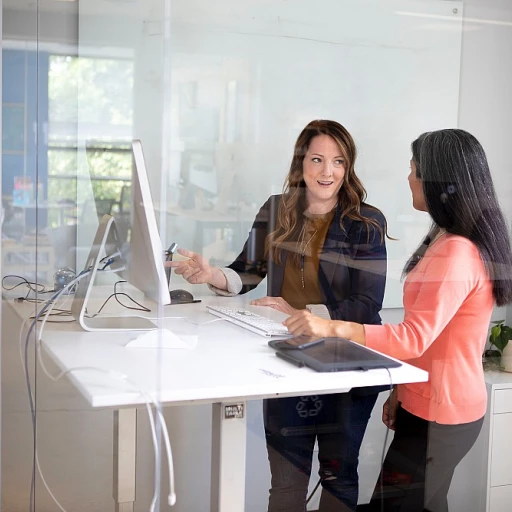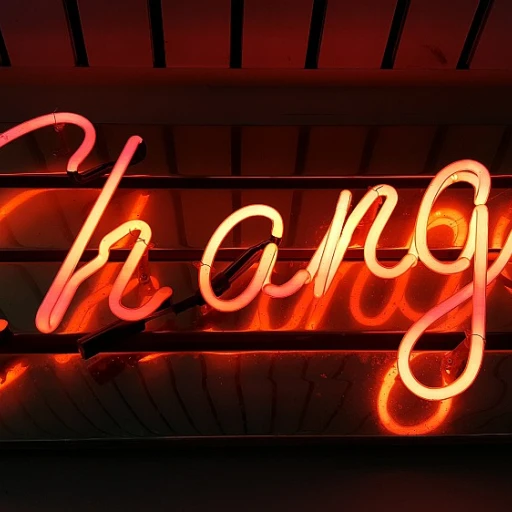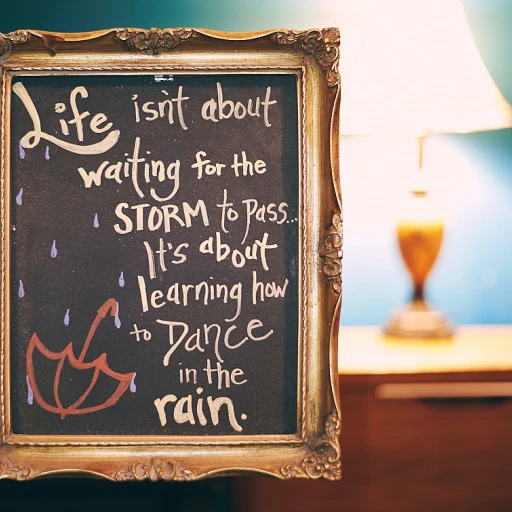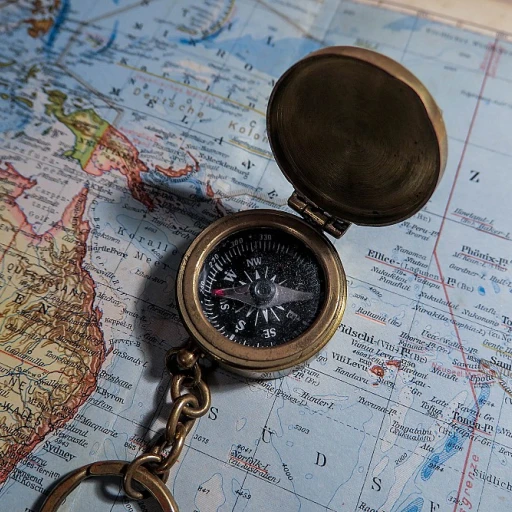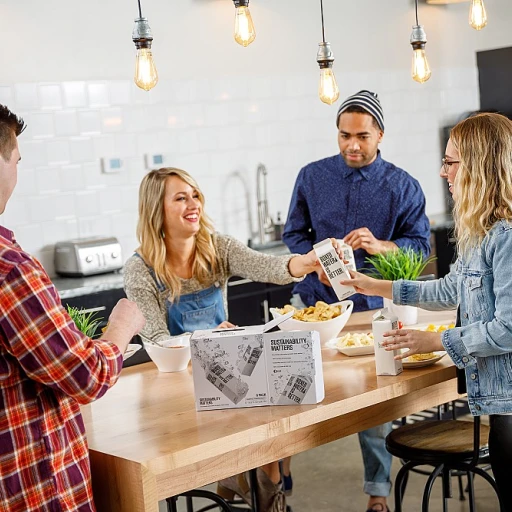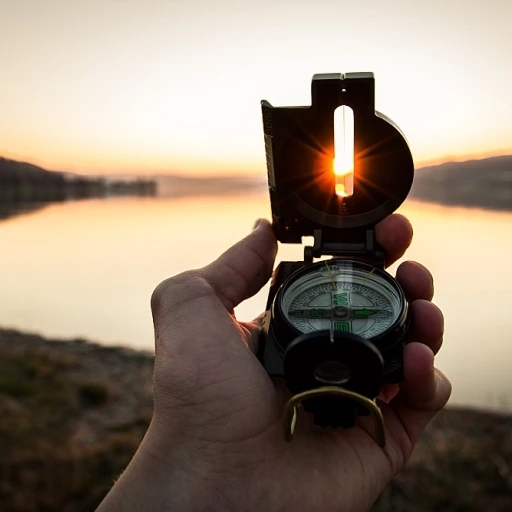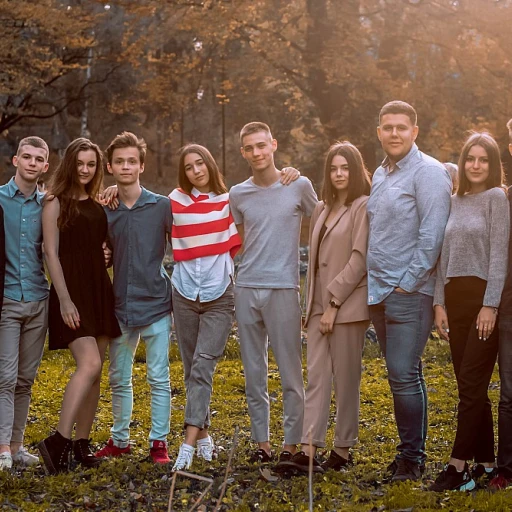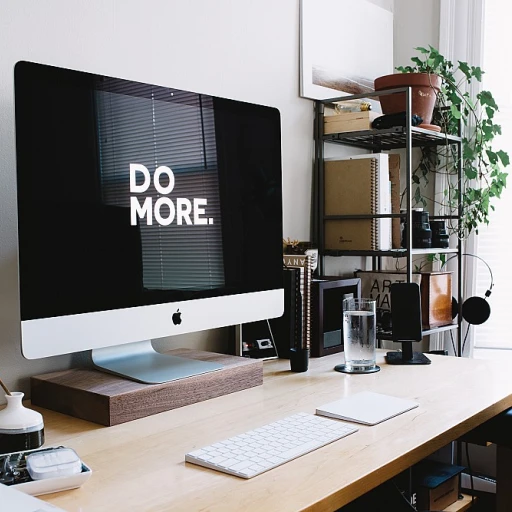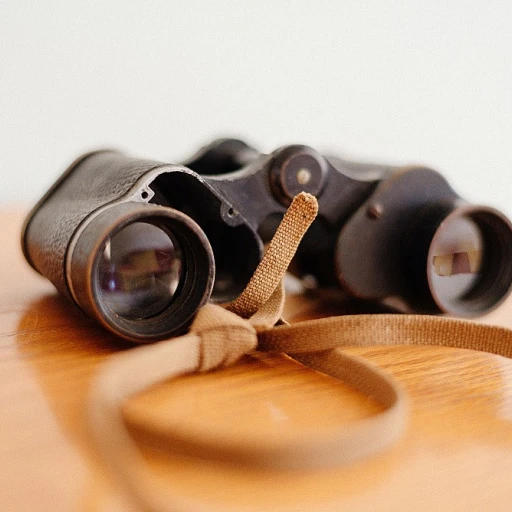
Understanding the Role of Teamwork in Modern Workplaces
The Importance of Teamwork in the Workplace
In today's professional landscape, the role of teamwork has become increasingly significant. Modern workplaces rely heavily on effective collaboration to achieve complex goals, making teamwork an essential component of organizational success. Understanding the dynamics of how team members interact and work towards a common objective can highlight why it is indispensable in any work environment.
Successful teamwork doesn't only revolve around achieving objectives. It also encompasses the ability to foster an atmosphere of open communication, where team members feel comfortable sharing ideas and providing valuable feedback. This climate is crucial for team dynamics and encourages the development of creative solutions to problems.
Moreover, teamwork allows for the pooling of diverse skills and perspectives. Each team member brings unique abilities and experiences to the table, which can be harnessed to enhance the team's overall capability to handle tasks and projects. The effectiveness of the team leader in facilitating these talents can significantly influence the outcome of team projects.
The essence of teamwork is also reflected in how teams navigate challenges. An example of teamwork in action could be how members come together to tackle a project with a tight deadline, describing a time when their collective problem-solving skills ensured the project's success. Such instances underscore the true power of collaborative efforts, where the collective ability of team members leads to achieving objectives more efficiently.
Recognizing and cultivating teamwork should be a part of the recruitment process through the careful crafting of interview questions. These questions reveal a candidate's ability to integrate into and contribute to a team environment effectively. Evaluating responses not only assists in selecting suitable candidates but also in enhancing their overall interview experience.
Identifying Key Teamwork Skills
Crucial Skills for Successful Teamwork
In modern workplaces, effective teamwork is paramount. In order to evaluate a candidate's potential success in a team environment, it is necessary to identify the key teamwork skills they possess. These skills are often integral in ensuring team success and can be pivotal during teamwork interviews.
Introduction to Vital Teamwork Competencies
A candidate's ability to work collaboratively in a team project is essential. Important teamwork skills include:
- Communication: Open communication is vital. It's important for team members to share ideas, feedback, and concerns. This ensures that all team members are on the same page and helps prevent misunderstandings.
- Problem Solving: The ability to address and solve problems collaboratively is crucial. An effective team should be capable of navigating challenges by pooling the collective skills of its members.
- Flexibility: Team dynamics often require adaptability. A team player should be able to adjust to new roles or changes in work processes.
- Conflict Resolution: Disagreements are inevitable in any team. A team member who can mediate conflicts and focus on common goals is a valuable asset.
Assessing the Ability to Collaborate
When designing interview questions for prospective team members, it's important to gauge their teamwork skills. To do this, you might ask candidates to describe a time when they successfully worked as part of a team. Their answer should highlight their communication style and problem-solving ability.
Additionally, presenting scenarios during an interview can reveal a candidate's teamwork dynamics. Consider questions that ask about past experiences with feedback or describe times when they had to be a team leader. The aim is to learn how candidates perceive group dynamics and their role within a team.
For a deeper dive into crafting effective interview questions for candidates, further resources offer a comprehensive understanding of these critical skills.
Designing Teamwork Questions for Interviews
Crafting Questions That Reveal Team Dynamics
Designing effective teamwork interview questions is crucial for understanding a candidate's ability to thrive in a team environment. The goal is to uncover insights into how a candidate interacts with team members, handles challenges, and contributes to team success.
Focusing on Core Teamwork Skills
When crafting questions, it's essential to target specific teamwork skills such as communication, problem-solving, and collaboration. For example, asking candidates to describe a time they worked on a team project can reveal their approach to teamwork and their role as a team member. An effective question might be: "Can you provide an example of a project where you had to ensure team success through open communication?" This encourages candidates to share their experiences and demonstrate their ability to work effectively within a team.
Scenario-Based Questions
Incorporating situational questions can be particularly revealing. These questions help assess a candidate's potential to handle real-world scenarios. For instance, you might ask: "How would you handle a situation where a team member is not contributing effectively to a project?" This type of question not only assesses problem-solving skills but also gauges the candidate's communication and leadership abilities.
Evaluating Communication and Feedback Skills
Questions that focus on communication and feedback are vital. Consider asking candidates how they give and receive feedback within a team. A question like "Describe a time when you had to provide constructive feedback to a team member" can highlight their communication style and their ability to foster a positive team dynamic.
Ensuring Comprehensive Evaluation
To ensure a well-rounded evaluation, it's important to vary the types of questions. Mix open-ended questions with specific examples to get a complete picture of the candidate's teamwork skills. Remember, the candidate's ability to articulate their experiences and insights is as important as the experiences themselves.
Evaluating Responses to Teamwork Questions
Analyzing Candidate Responses and Their Impact
When evaluating responses to teamwork interview questions, it’s essential to focus on both the content of the answer and the manner in which a candidate communicates. Analyzing responses in this way helps to understand not just what the candidate is saying, but how they might fit into your team environment.- Content Quality: Begin by assessing the clarity of the candidate's answers. Are they able to effectively communicate their teamwork skills and provide specific examples of previous team projects? This includes evaluating their ability to describe a time when they contributed to team success or navigated team dynamics.
- Problem Solving and Critical Thinking: Examine how candidates describe tackling challenges or conflicts within a team. An interview question might ask a candidate to describe a time they faced a team project deadline under pressure. Assess their problem-solving capabilities and how they leverage teamwork to ensure team progress.
- Role and Contribution: Pay attention to how candidates define their role within a team. Are they demonstrating a team player mindset, or do they tend to position themselves as the sole team leader? Look for indications of open communication and collaboration as they discuss their contributions to successful projects.
- Feedback and Reflection: Good team members are receptive to feedback and use it as an opportunity for improvement. When a candidate is asked about a time they received feedback, their response should reflect a willingness to adapt and grow from the experience.
Common Pitfalls in Teamwork Interviews
Recognizing Common Missteps in Teamwork Interviews
Interviewing candidates effectively requires keen attention not only to crafting the right questions but also to identifying and avoiding common pitfalls associated with teamwork interviews. As teamwork is intrinsic to a modern workplace, it is crucial to ensure questions reflect the dynamics and demands of a collaborative environment. One of the prominent pitfalls involves using overly generic questions. Simply asking candidates to "describe a time you worked on a team" may not provide insights into their problem-solving abilities or their role within a team. Instead, tailoring the question to elicit specific examples of effective communication or how a candidate ensured team success can produce more meaningful answers. Another pitfall often seen is heavy reliance on theoretical questions rather than practical, scenario-based ones. Questions that prompt candidates to project their abilities into hypothetical situations fail to uncover how they have used their skills to navigate real team challenges. By asking situational interview questions based on past experiences, such as "Can you provide an example of a team project where you played a lead role in achieving team goals?", interviewers can gather concrete evidence of a candidate's teamwork skills. Additionally, many interviewers make the mistake of not probing deeper into answers regarding teamwork dynamics. Superficial questions about teamwork might lead to rehearsed responses rather than authentic insights into a candidate's ability to engage in open communication or adapt to different team roles. Following up initial questions with requests for more detail, or asking for feedback that a candidate has received from team members, can clarify their previous responses and reveal more about their interactions in a team environment. It's also important to avoid an excessive focus on individual accomplishments when discussing team projects. While understanding individual contributions is crucial, emphasizing them too much during teamwork interviews can detract from assessing how candidates interact with others and contribute to group success. A balanced approach that considers both individual and collective achievements provides a more holistic understanding of a candidate's teamwork capabilities. Finally, a lack of attention to specific feedback during interviews can cause interviewers to miss red flags or positive indicators of a candidate's fit within the team. Interviewers should design questions to understand how candidates handle feedback from team members or a team leader, assess their willingness to grow, and their ability to facilitate a positive working team environment. By recognizing these common pitfalls and adjusting interview questions to better evaluate teamwork skills, interviewers can improve candidate experience and identify individuals who will thrive in collaboration and ensure team success.Enhancing Candidate Experience Through Teamwork Questions
Improving the Interview Experience with Teamwork Focus
Creating a positive candidate experience during a teamwork-focused interview starts with clear intentions and thoughtful preparation. As teamwork is integral in many modern workplaces, it is essential to align interview questions with real-world applications, ensuring candidates can showcase their teamwork skills effectively. To enhance the candidate experience, consider the following:- Clarity and Context: Clearly define the role each candidate is interviewing for and the importance of teamwork within this role. Discuss key projects they might engage in and the typical team dynamics in your workplace.
- Relevant Questions: Craft questions that reflect actual scenarios they are likely to encounter. This approach not only assesses their problem solving skills and ability to work in team environments but also gives candidates a realistic preview of the role. Questions should focus on past experiences, such as requesting the candidate to "describe a time" when they had to ensure team success or manage open communication among diverse team members.
- Encourage Open Communication: Create an atmosphere where candidates feel comfortable sharing their experiences. This can lead to more authentic answers and a better understanding of their communication and interpersonal skills.
- Feedback Mechanism: After the interview, provide candidates with constructive feedback. This not only helps them improve but also reflects positively on your organization as it demonstrates a commitment to a supportive interview process.
- Avoid Common Pitfalls: Be aware of common mistakes such as asking overly complex questions or failing to properly gauge the candidate's team player abilities. Focus on achievable questions that allow candidates to demonstrate their contributions to a team project effectively.


